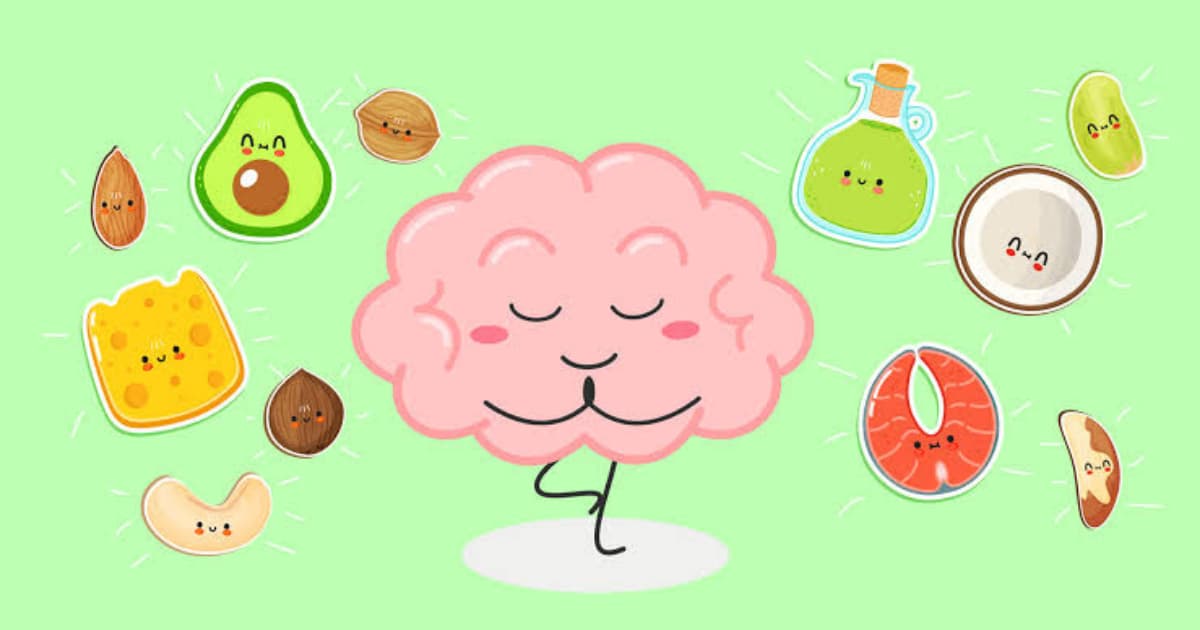
Are fats really bad for our health? Clearing the misconception
Fats have been a controversial topic in nutrition and is often thought of as something of a monster when it comes to healthy nutrition and diet. However, it is extremely important to understand and acknowledge that fats are an essential part of a balanced diet.
Dietary fats are saturated, unsaturated or trans fats depending on the molecular structure. Saturated fats are fats with no double bonds between carbon atoms as they are saturated with hydrogen. They are typically solid at room temperature and are found in animal products such as meat, butter, and cheese, as well as in certain plant-based oils like coconut oil and palm oil.
Unsaturated fats include monounsaturated fats (found in olive oil, avocados, and nuts) and polyunsaturated fats (found in fish, flaxseeds, and walnuts). Their molecular structure includes double bonds between carbon atoms and less bonds with hydrogen.
Trans-fats are often found in processed foods and baked goods, these are artificially created fats.
The primary role of dietary fat is to serve as a concentrated source of energy. Each gram of fat provides nine calories, more than double the energy provided by carbohydrates and proteins, which offer four calories per gram each. This makes fats particularly valuable in situations where the body requires a dense energy source, such as during prolonged physical activity or when food intake is limited. Fats are also important for providing the body with essential fatty acids.
Certain vitamins, known as fat-soluble vitamins, require fat for their absorption and transportation within the body. These include vitamins A, D, E, and K. Without adequate dietary fat, the body would struggle to absorb these vital nutrients.
Critical role of fats
Fats are integral components of cell membranes, providing structural integrity and fluidity. This structural role is vital for the health of all cells, including those in the brain, where a substantial amount of saturated fat is necessary for the proper function of neural pathways and cognitive processes.
Fats play a pivotal role in the production of hormones, particularly steroid hormones such as estrogen, testosterone, and cortisol. These hormones are involved in numerous physiological processes, including metabolism, immune function, and stress response.
Fats contribute to the sensation of satiety, helping to regulate appetite and prevent overeating. Because fats are digested more slowly than carbohydrates and proteins, they provide a longer-lasting source of energy and help to maintain stable blood sugar levels. This can be particularly beneficial for weight management, as it reduces the likelihood of snacking between meals and promotes a feeling of fullness.
The impact of fats (saturated or unsaturated) on health can vary depending on the individual’s overall diet and lifestyle. Diets high in refined sugars and processed foods may exacerbate the negative effects of saturated fats, while diets rich in whole foods, fibre, and healthy fats (such as those found in nuts, seeds, and fish) can mitigate these effects and highlight the benefits of saturated fats.
When it comes to fat profiling, one very much misunderstood and wrongly maligned edible oil is palm oil due to its close to 50 percent saturated fat content. Palm oil is unique among vegetable oils due to its balanced composition of saturated and unsaturated fats. It contains approximately 50% saturated fats, 40% monounsaturated fats, and 10% polyunsaturated fats. The primary saturated fat in palm oil is palmitic acid, while oleic acid represents the bulk of its monounsaturated fats.
Additionally, palm oil is rich in vitamins, particularly vitamin E in the form of tocotrienols and tocopherols, and pro-vitamin A carotenoids. Red palm oil, in particular, is rich in beta-carotene, a precursor to vitamin A, which is essential for vision, immune function, and skin health. The tocotrienols and tocopherols (forms of vitamin E) found in palm oil are potent antioxidants that help protect cells from damage by free radicals. Tocotrienols (vitamin E) present in palm oil have shown promise in promoting brain health. Studies suggest that these compounds may protect against neurodegenerative diseases such as Alzheimer's by reducing oxidative stress and inflammation in the brain. Additionally, tocotrienols may support cognitive function and overall brain health.
When compared to other oils like olive oil or coconut oil, which are commonly used in cooking, palm oil offers several advantages. Olive oil is known for its high content of monounsaturated fats and antioxidants. However, it has a lower smoke point compared to palm oil, making it less suitable for high-heat cooking. While olive oil is excellent for salads and low-heat cooking, palm oil offers versatility for a broader range of culinary applications. Coconut oil is high in saturated fats, particularly medium-chain triglycerides (MCTs), which are rapidly metabolized for energy. However, its high saturated fat content (nearly 92 %) can be a concern for those monitoring their cholesterol levels.
It is extremely important to choose quality and natural unprocessed sources of saturated fats. These sources not only provide saturated fats but also offer other beneficial nutrients. It is equally important to balance with Unsaturated Fats and include a variety of healthy fats in your diet, such as those from avocados, olive oil, and fatty fish. A balance of different types of fats can support overall health. At the same time, it is essential to monitor total fat intake and pay attention to the total amount of fat in your diet aiming for a moderate and balanced intake that supports energy needs and overall health goals.
(Dr Varun Bansal is Consultant Cardiac Surgeon, Indraprastha Apollo Hospitals, who specialises in Minimally Invasive and Robotic cardiac Surgery in addition to routine and complex cardiac surgical procedures for various heart ailments.)
Popular Categories
Read More Articles
Travel and Tourism
Lucknow or Zaike: A City Remembered Through Taste by Mohammed Syed Zaid February 11, 2026Business
What's Up With WhatsApp? by Prateek Shukla February 9, 2026Entertainment
Reviving the Sounds of Awadh: Folk Singer Sarita Tiwari to Provide Free Training to Rural Women and Girls by Awadh 360° Desk February 7, 2026India
रिसर्च एंड डेवलपमेंट योजना’ के तहत सेंटर ऑफ एक्सीलेंस गठन हेतु विशेषज्ञ समितियां गठित by Awadh 360° Desk February 6, 2026



